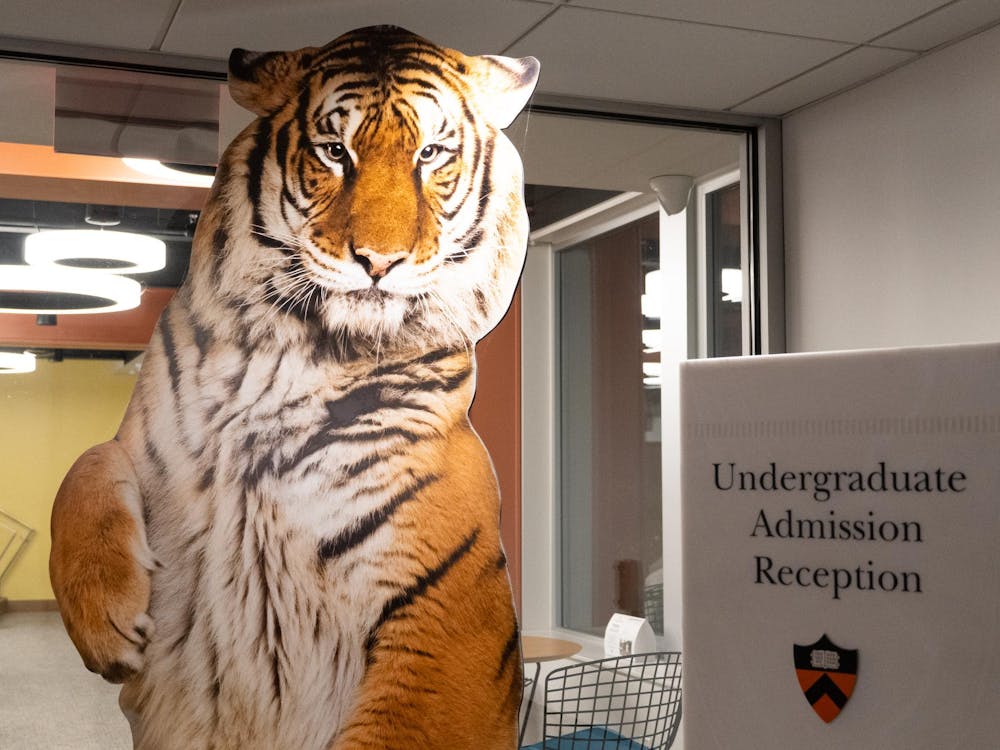The event will take place on Sunday at the home of longtime Obama supporter Andrew Golden, the president of Princeton University Investment Company, and his wife Carol.
Guests will be charged $1,000 for attendance at the general reception and $10,000 for a photograph with the first lady. Proceeds will go to the Obama Victory Fund, a fundraising committee managed jointly by the President’s reelection campaign and the Democratic National Committee.
The Obama and Romney campaigns have fundraised fiercely in recent months to raise money for advertising, field organizers and a myriad of other costs before the general election on Nov. 6. In July, the Romney campaign and its Republican allies outraised the Obama campaign by nearly $25 million, but in August the Democrats had raised $3 million more than their rivals.
Both candidates’ spouses have been deployed frequently throughout the course of the presidential race to speak at fundraising events. Though Michelle Obama has fundraised on behalf of her husband in many places across the country, she has not yet done so in Princeton.
At Princeton, Obama pursued a bachelor’s degree in sociology and was involved with the Third World Center — now known as the Fields Center — which then served as an umbrella organization for minority groups on campus. Since graduating in 1985, Obama has returned to campus only once or twice, according to an Aug. 29 Politico story.
In 2010, the first lady’s scheduling office sent a letter of regret to the University explaining that Obama would be unable to attend her 25th Reunion. At the time, her nonattendance was explained as a result of her busy schedule, but some interpreted that her failure to return to campus was due to her personal feelings toward the University.
The first lady’s seemingly lukewarm relationship with her alma mater has been the subject of much debate by political commentators and students alike, often centering on her assessment of the uncomfortable atmosphere that black students faced at the University in her thesis, “Princeton Educated Blacks and the Black Community.”
“My experiences at Princeton have made me far more aware of my ‘Blackness’ than ever before,” Obama wrote in her thesis introduction.
“I have found that at Princeton, no matter how liberal and open-minded some of my White professors and classmates try to be toward me, I sometimes feel like a visitor on campus; as if I really don’t belong. Regardless of the circumstances under which I interact with Whites at Princeton, it often seems as if, to them, I will always be Black first and a student second.”
During the 2008 presidential campaign, conservative commentators seized upon lines like these. They suggested that Obama’s thesis revealed feelings of alienation and anger toward whites, and used it to bolster their portrayal of the future first lady as an “angry black woman,” a label Obama disputed directly in January.
But sociology professor emeritus Howard Taylor, who helped advise Obama’s thesis, said that one could more accurately describe her feelings toward the University as “cautious.” The young Michelle Obama was sensitive to the racial dynamics of Princeton in the 1980s, but not alienated from the larger Princeton student community, he said.
She had a warm personality, an analytical mind and was “a quiet, contemplative sort” of person, Taylor said.

After graduation, Obama attended Harvard Law School and held several positions at law firms and in the public sector. She married Barack Obama in 1992 and became first lady after his election in 2008.
The first lady has not often spoken publicly about her attitude toward the University. Though she spoke nostalgically about her time in “college” at the Democratic National Convention earlier this month, she did not identify Princeton by name.
Since the beginning of the 2012 campaign, Obama has traveled across the country to campaign for her husband. The Goldens have made consistent campaign contributions to Democratic candidates and organizations. Andrew Golden has donated $12,476 to Democratic groups since 2007, according to public campaign donation data collected by the Center for Responsive Politics.
Golden’s wife, a community activist and a board member for the local Planned Parenthood, has donated $20,269 to Democratic groups and candidates in the last five years. Both have donated to the campaigns of Barack Obama and Rush Holt, who represents Princeton in the House of Representatives.
Physics professor Chiara Nappi, who has donated thousands of dollars to the Obama campaign, said she plans to attend the event. Sociology lecturer Patricia Fernandez-Kelly and chemistry professor Roberto Car, who have both donated over $1,000 to the Obama campaign, said they will not be attending.







